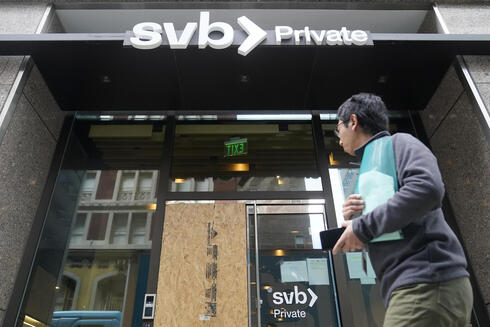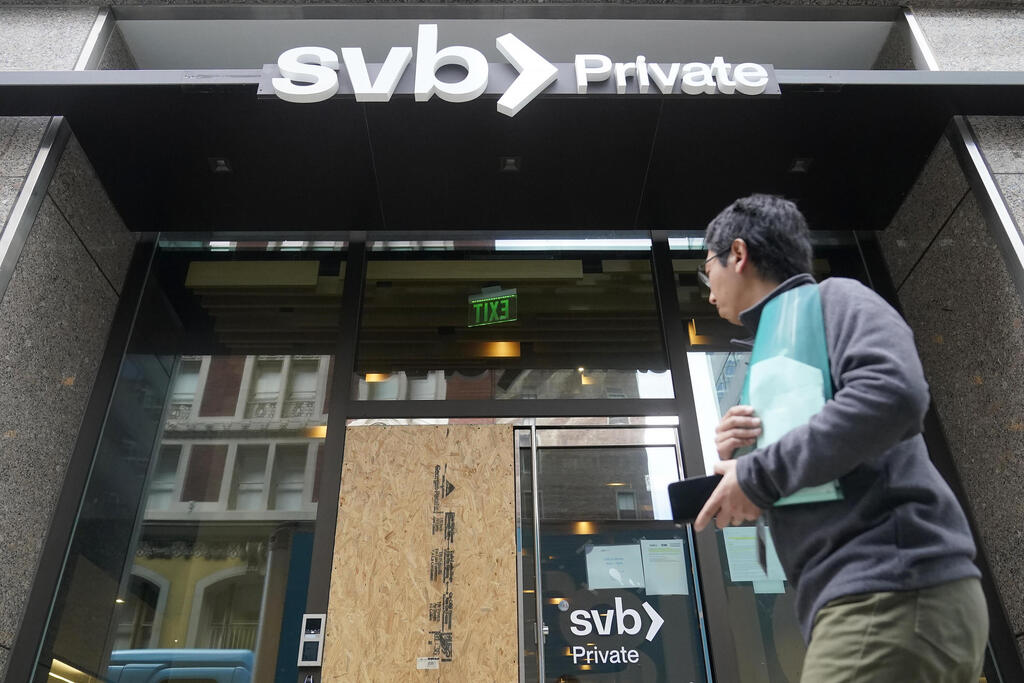
High-stakes battle for high-tech debt market dominance unleashed by HSBC and BlackRock
HSBC's entry through what was previously SVB's Israel branch and BlackRock's backing of Kreos Capital signal a new era of competition and opportunity
After several quiet months, the credit market for high-tech companies has burst into life. Just a few days after BlackRock, the world's largest asset management firm with approximately $10 trillion in assets, made the intriguing decision to acquire Kreos Capital, a prominent player in Israel's high-tech sector, British bank HSBC has also announced its official entry into the field.
HSBC, the largest bank in Europe with approximately $3 trillion in assets, purchased the European operations of Silicon Valley Bank (SVB) last March. SVB’s collapse shook the Israeli ecosystem as it had previously served as the primary financial institution for local startup companies and venture capital funds.
Although SVB's Israeli activity was historically part of SVB USA, the local team, led by David Cohen, is now returning back to action under HSBC. They are returning to a landscape that has undergone changes over recent months. Other players in the market, such as LeumiTech, Poalim Hi-Tech, and Discount Tech, seized the opportunity created by the recent vacuum to attract the high-tech companies that SVB lost. Additionally, Kreos Capital, which provided credit to over 100 high-tech companies throughout its years of operation, will now operate with the strong and aggressive backing of BlackRock.
Furthermore, SVB's remaining operations in the United States were sold to First Citizens Bank (FCB), which maintained the credit lines extended to Israeli companies. Although FCB's presence in Israel is not particularly noticeable at the moment, the bank's Middle East regional executives have indicated in closed meetings that the Israeli market is central to their plans. They aim to become more aggressive in marketing their services by the end of the year, after resolving their current challenges.
Venture debt activity has increased fivefold over the past decade. As one of the world's oldest banks, established in the 19th century, HSBC is entering this sector under much fanfare. The recent announcement regarding its innovation arm was accompanied by a quote from British Prime Minister Rishi Sunak, emphasizing the importance of the technology and life sciences sectors in the UK.
HSBC has emphasized that in addition to the familiar SVB team, which includes Cohen, Gadi Moshe, Alon Oz, Tamir Efrati, and Meir Slobodov, they have recruited around 20 additional team members to expand their operations. It remains unclear whether the SVB team will work from HSBC offices in Ramat Gan or maintain a separate presence in their previous Tel Aviv offices.
"We aim to continue supporting Israel's innovation economy in a responsible manner," stated Cohen in his first public statement since SVB's collapse. "This means assessing and estimating risks through various indicators, with a desire to support reliable companies."
The surge in the high-tech debt market is not coincidental; it is a response to the industry's increasing demand for non-equity financing solutions. These solutions help companies avoid raising capital at reduced valuations or buy time until capital raising recovers. The venture debt market has gained momentum due to the high demand, but it has also burned many with the collapses of SVB, Signature Bank, and other small and medium-sized American banks that had exposure to the high-tech sector.
In the United States, risk debt activity has skyrocketed from $6.7 billion in 2012 to $31.2 billion in 2022. SVB alone distributed close to $7 billion in credit in 2022. With rising interest rates, which make credit more expensive and less accessible, private investment funds have entered the field with force. BlackRock's recent involvement is a prominent example. In the first half of 2023 alone, investment funds raised $42.5 billion, primarily intended for debt activity, including for high-tech.
In the first quarter of 2023, Israeli startups experienced a 70% decline in capital raising, and the current quarter's numbers may be even worse. The market is divided between companies urgently in need of funding but unable to secure it and companies capable of raising funds but unwilling to do so at reduced valuations. Only a few companies are both willing and able to raise capital easily, and they are typically uninterested in debt financing.
The first two groups are interested in obtaining credit from entities like the tech arms of Israeli banks or entities like SVB and Kreos. However, banks make it challenging for them, requiring stable cash flow, profitability, cash balances, and investor commitment for additional investments. If shareholders cannot guarantee another investment round, which the banks expect to repay the debt, financing will not be provided. The conventional wisdom until now was that for every capital raise, an additional 25% could be obtained in debt. However, as round sizes shrink, companies find themselves with less cushion for debt financing.
"It has become much more difficult for high-tech companies to take on debt for several reasons," says Yanai Oron, General Partner at Vertex Ventures. "Interest rates have increased, competition among credit providers in Israel has decreased, as has the level of risk they are willing to take on. Debt is cheaper for companies compared to equity, with an expected 10% return versus 20-30% for shares, and it is not dilutive. When a company has sufficient cash and good cash flow predictability, it is an attractive option. However, banks' money alone will not save struggling companies; it only optimizes the situation for companies in a good position. With SVB's return to activity under HSBC, the critical question is how much risk appetite they will bring to the game."
On the other hand, Kreos, backed by BlackRock, is expected to enter the market with an increased appetite for risk, seeking not only high-tech debt deals but opportunities in all sectors. "When high-tech companies approach the banking system, they are told that stocks are not safe. However, investment funds find these stocks secure and highly appealing," says Avihai Michaeli, partner and head of M&As at PwC Israel. He further explains that high-tech companies currently have a strong interest in loans. They are cutting expenses and extending their runway to avoid down rounds, creating many opportunities for lenders.
“While banks have little interest in shares of star-up companies, investment funds are not afraid to hold shares. Nevertheless, non-bank entities have also become more cautious, conducting deeper assessments of companies. Until recently, entrepreneurs didn't need to provide detailed explanations for credit lines, but today lenders require profitability projections and often want to talk to clients.”














